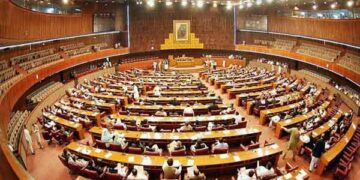Gunmen have assassinated Elvino Dias, the lawyer representing Mozambique’s leading opposition presidential candidate, Venancio Mondlane, along with Paulo Guambe, a candidate from the Podemos party, in the capital city of Maputo on Saturday.
The killings sent shockwaves through the country as Mozambique awaited the official results of its October 9 elections.
Witnesses reported that two gunmen opened fire on the car in which Dias and Guambe were travelling, killing both men while the vehicle was stationary in the heart of Maputo. The murders have been described as an act of political intimidation, sparking outrage from civil society and political figures alike.
Podemos party leader Albino Forquilha confirmed the deaths to AFP, while the national lawyers’ association expressed “deep shock” at the loss of Dias. The group Mais Integridade, a civil society observer organization, condemned the killings as “repugnant” and labeled them “an act of intimidation” that undermines democracy in the country.
The European Union swiftly issued a statement condemning the attack and calling for a thorough investigation. “In a democracy, there is no place for politically motivated killings,” the EU said, urging Mozambican authorities to ensure those responsible for this “outrageous crime” are brought to justice.
Mozambican police have launched an investigation but have yet to officially confirm the identities of the victims. However, the killings have already heightened tensions as the country awaits the official nationwide results from the presidential election, set to be announced on October 24.
Venancio Mondlane, who ran against the long-ruling Frelimo party, claimed victory shortly after polling day, alleging widespread electoral fraud as Frelimo continued to assert its lead in ballot counts. Mondlane has called for demonstrations to be held on Monday in protest of the alleged irregularities, further fueling the volatile political atmosphere.
The assassination of high-profile political figures just days before the official election results has threatened to cast a shadow over Mozambique’s fragile democratic process.





